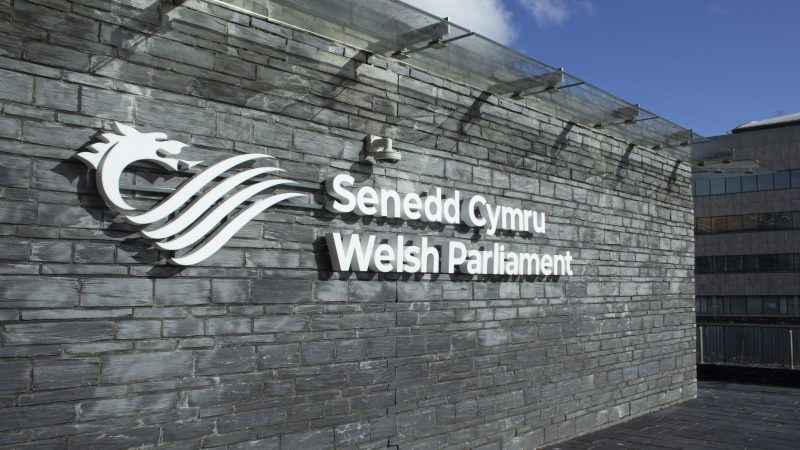
Wales is often the awkward relation of British politics that seldom factors into national day-to-day political discourse or decision making. However, as Scottish independence and Irish reunification become real possibilities, the prospect of a sovereign Welsh state is one that is picking up speed under the radar of many London-based politicians and journalists.
A recent YouGov poll saw support for Welsh independence reach its highest ever level at 25% and this is no flash in the pan. The general trend points toward slow, but increasing support for independence, up from 10% in 2013 to its current levels. Additionally, 34% of 18-24 year-olds currently back independence, along with 29% of Labour supporters, posing potential future difficulties for the party if it doesn’t put forward an appealing constitutional offer.
Polls aside, the nationalist movement is growing both in terms of its numbers and energy. In May 2019, thousands joined a boisterous ‘March for Welsh Independence’ on the streets of Cardiff in the biggest pro-independence protest in recent memory, followed by an even bigger march in Merthyr, perhaps the spiritual birthplace of Welsh socialism.
This movement is also becoming more embedded within cultural institutions with the likes of Welsh Football Fans for Independence boasting formidable and vocal presences at international football games. In addition, the cross-party ‘Yes Cymru’ pro-independence group reported a tripling of its membership in the last year, with their badges becoming more common on cars and social media profiles.
For many like myself who grew up in the solidly Labour heartlands of South Wales, nationalism is now far from the fringe movement it once was. Labour politicians both in Cardiff and Westminster must make a case for the radically different UK, backed by a radical new devolution deal, to quell this tide.
The reasons behind the nationalist surge are manifold, but almost certainly related in-part to Wales’ stubborn poverty problem. Oxfam reports a quarter of the country earns less than 60% of the average wage, an issue that has persisted for over a decade. Consequently, Wales has the worst levels of child poverty in the UK, impacting a third of children. This shameful indictment has brought into question the role of both Westminster and the powers it devolves to Cardiff, the least powerful of all three of the three devolved legislatures.
Wales’ devolution journey has seen it go from an assembly akin to a glorified local authority in 1999, to the parliament with primary legislation powers it is today. It has allowed the Senedd to alter or outright reject some Westminster policies, such as prescription fees and hospital car parking charges. Still, it lacks the powers needed to address the country’s deep-rooted problems.
The Wales Act of 2017 moved the parliament from a ‘delegated powers model’ to a ‘reserved powers’ one, meaning it can legislate in areas not reserved by Whitehall and this ostensibly increased its powers. However, the UK government reserved a convoluted list of nearly 200 powers, including employment and industrial relations that were hitherto devolved. This means the Welsh government’s 2017 refusal to implement the Tories’ Trade Union Act would no longer be possible.
A new devolution settlement must re-write and simplify this list and allow the Senedd to eradicate the scourge of child poverty. Devolving employment matters could allow a Welsh statutory living wage, powers over welfare could lead to a benefits system which supports the most vulnerable, and the devolution of justice would allow reform to a system that disproportionately incarcerates the poorest, focussing efforts toward rehabilitation instead. Excitingly from a Labour perspective, lifting the £1 billion cap on borrowing could clear the way for a Green New Deal that could transform Wales into a hub of green energy and create tens of thousands of new jobs along the way.
Keir Starmer previously backed a federal Britain but has offered few policy details. But with new battle lines being drawn in Welsh politics ahead of the 2021 Senedd elections, Labour needs a clear offer. On one side, Plaid Cymru, led by the very capable and charismatic Adam Price, are doubling down on the case for independence both in the Senedd and to the public. On the other, the Welsh Tories, who are a significant electoral threat following the last general election, are pitching toward the 25% of voters who wish to abolish the assembly, with promises to curb its influence and spending. Labour cannot afford to be complacent whilst these two forces grow in potency and risk its traditional dominance being replaced by either form of nationalism.
After much of North Wales turned blue last December, South Wales is Labour’s last ‘Red Wall’. In order to keep it that way and win back lost voters, it must offer something that trumps both independence and the undoing of hard-won devolution: a more powerful Senedd with the ability to create meaningful change, not just tinker around the edges. Without action, a green tide of independence could blindside London politicians and lead to a more fractured Britain and weaker labour movement.




More from LabourList
‘Labour council candidates – it’s tough, but all is not lost’
‘Labour won’t stop the far right by changing leaders — only by proving what the left can deliver’
‘Cutting Welsh university funding would be economic vandalism, not reform’